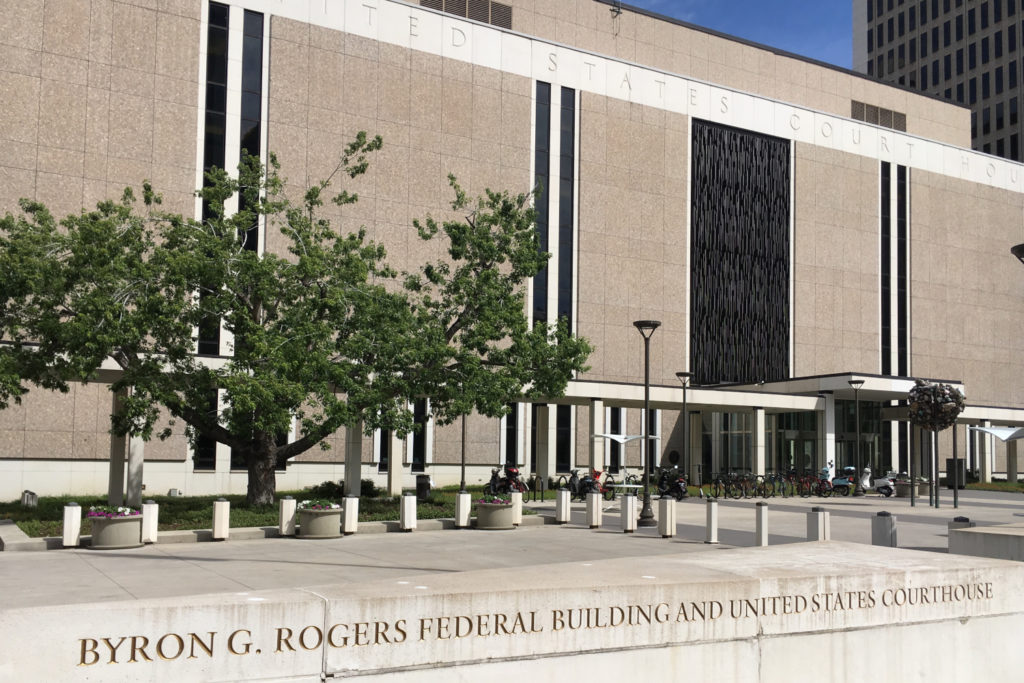By Jeffrey A. Roberts
CFOIC Executive Director
A Colorado law that criminalizes the public disclosure of child abuse and neglect reports is unconstitutional and protects child welfare workers accused of misconduct, a federal lawsuit alleges.
In a complaint filed this week in U.S. District Court, Denver lawyer Jessica Peck says the statute prevents her and others from speaking out about “misfeasance and malfeasance on the part of government officials” without fear of prosecution.
“Every time we lose yet another kid to preventable violence, we must start asking some very serious questions,” Peck said in an emailed statement. Too often, she wrote, the state’s child protective services system “is the only source that gets to decide our answers. The agency operates in darkness, empowered to bully into silence the grieving families, reporters and lawyers who dare to question the agency’s role in any derogatory way.”

The state statute in question is § 19-1-307, which is intended to protect the privacy of children, families and informants in child abuse and neglect cases. It makes all identifying information in reports about those cases confidential, and anyone who violates the provision faces a fine of up to $300. Anyone who improperly releases information contained in the reports faces a class 1 misdemeanor charge.
Peck, who handles family law and juvenile court matters, says in her lawsuit that she frequently obtains records containing “factually false information detrimental to her clients that is presented as fact.” Although the law allows government agencies and contractors to exchange case information, “it provides no means to allow parents to reveal information specific to caseworker misconduct, but for very limited exceptions, most typically only accruing after a child’s death by homicide,” her statement says. “The statute does not allow for records release in those cases where a child dies by suicide.”
Her concern, she says, is “the need to hold caseworkers accountable before children die. Under existing language, it is very difficult to make this happen.”
In January, 5280 magazine published an article about the suicide death of a 9-year-old boy and possible misconduct by human services caseworkers. The lawsuit filed by Peck, who represented the boy’s family, says that police contacted 5280 staffers and a caseworker who “blew the whistle” in the article, demanding to know who released the boy’s records.
The suit also references a January Westword article in which Peck accused Denver Human Services workers of filing a case against her client “without a single shred of evidence.” Soon after the article was published, the lawsuit says, Peck was issued a gag order and threatened with prosecution, even though she didn’t disclose identifying information about a child, family member or others named in a child abuse record.
“As a result of the gag order and threat of prosecution, Ms. Peck believes she cannot disclose governmental abuse when it relates to a child abuse report,” her complaint says. “… Ms. Peck’s speech has been, and remains, chilled and abridged.”
Peck’s lawsuit contends that the state statute is “overbroad” and violates the First Amendment rights of those who seek to expose official misconduct. It also claims the prohibitions in § 19-1-307 are vague and “criminalize protected speech” under the Colorado Constitution’s free speech clause.
“This statute we are attacking is a bureaucrat’s dream, shielding those responsible for protection of our children from all meaningful accountability,” said Tom Kelley, Peck’s attorney. “In the process, it tramples the free speech rights of those who would expose official lapses, incompetence and wrongdoing.”
Kelley, who is of counsel at Killmer, Lane & Newman, is past president of the Colorado Freedom of Information Coalition and a current board member.
Peck’s lawsuit names as defendants Gov. Jared Polis, Attorney General Phil Weiser and Denver District Attorney Beth McCann. Lawrence Pacheco, Weiser’s spokesman, said he couldn’t comment on an active case. Carolyn Tyler, McCann’s spokeswoman, said she couldn’t discuss the case because the office hadn’t been formally served with the suit.
Conor Cahill, press secretary for the governor, provided a statement: “We can’t comment on pending litigation, but know the Governor cares deeply about children safety and the welfare of all Coloradans.”
Follow the Colorado Freedom of Information Coalition on Twitter @CoFOIC. Like CFOIC’s Facebook page. Do you appreciate the information and resources provided by CFOIC? Please consider making a tax-deductible donation.




